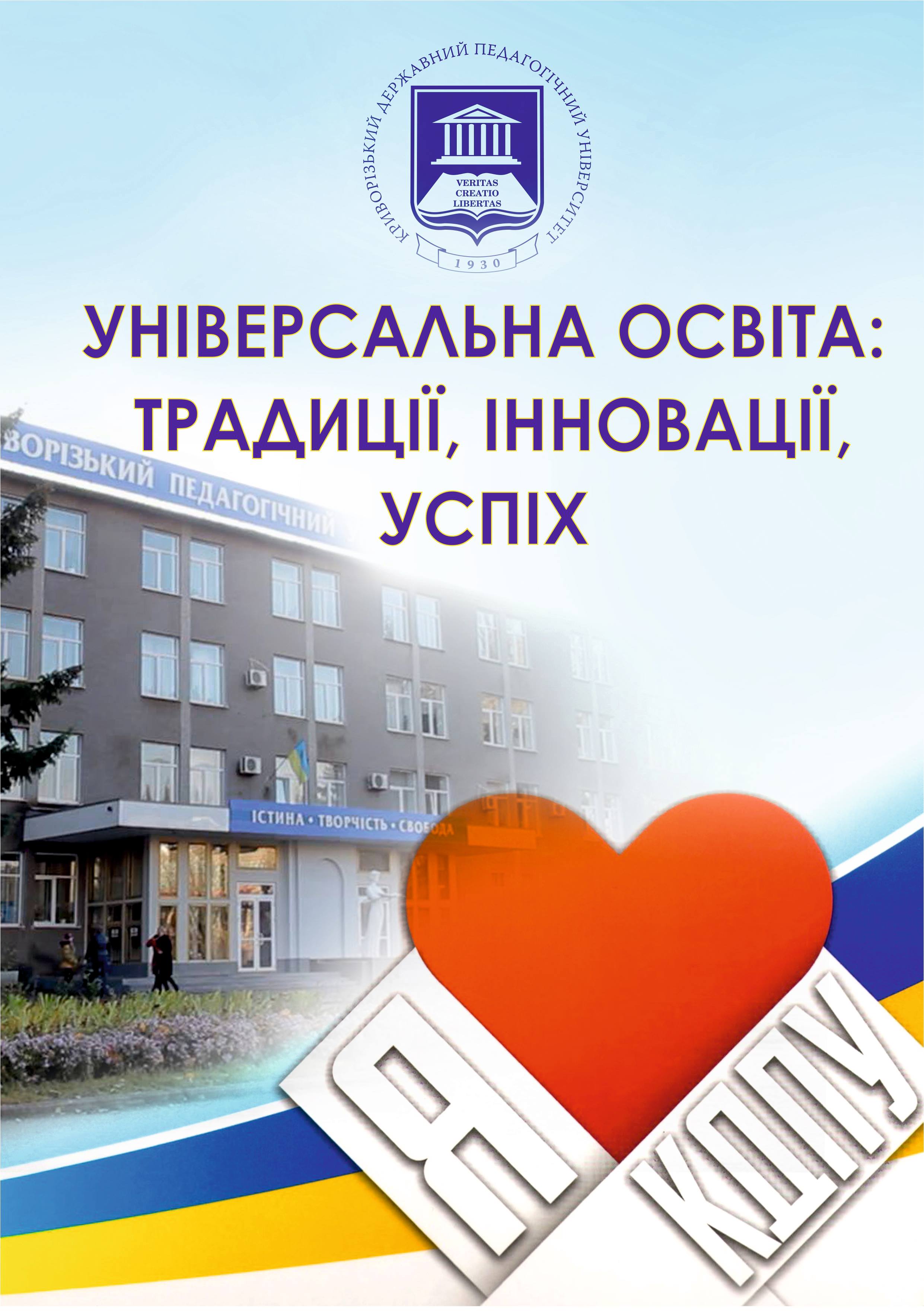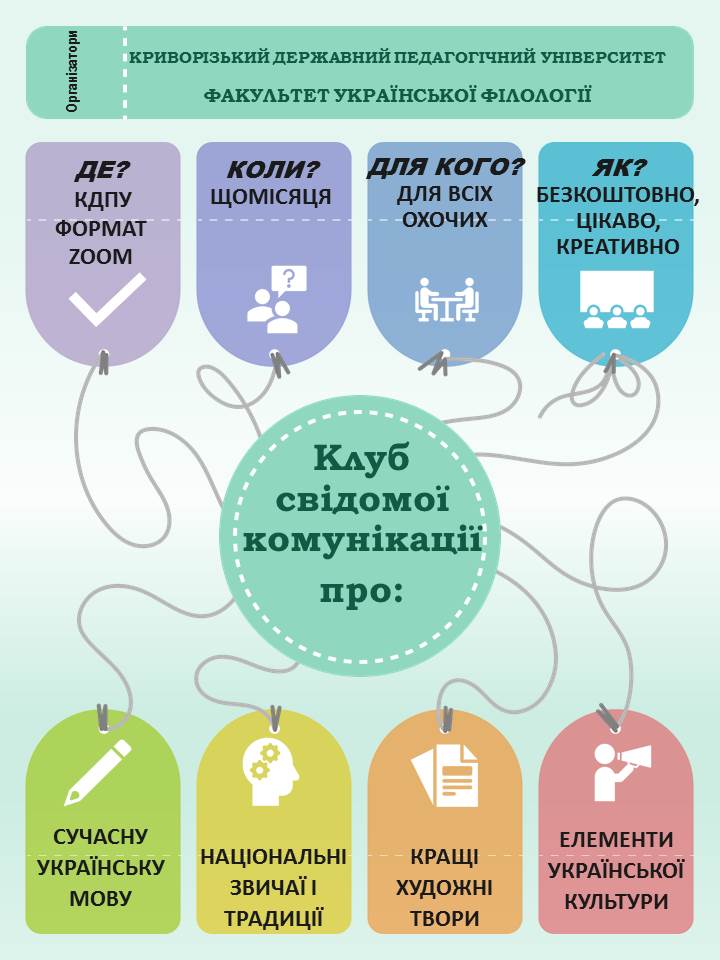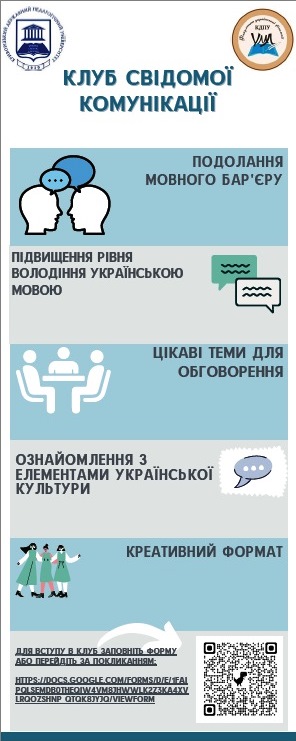The Permanent Seminar was founded as an initiative of the participants of the Workshop ETHICS OF THE UKRAINE WAR 16-17th of February 2023.
Official YouTube channel: https://www.youtube.com/@PostScriptum2022
One of the proposals made by the participants of the workshop was to organize a permanent ongoing philosophical seminar (regularity - once a month) to discuss the issues of "Ethics of the Ukraine War" and a wider range of ethical, moral, political, social problems related to the new historical and civilizational stage in which we have entered.
The focus of the proposed seminar is philosophical methodology, philosophical and epistemological tools for understanding this range of problems, a such named philosophical laboratory.
The organizer and host of the seminar is Inna Golubovych, Professor, Head of Philosophy Deparment, Odessa I. I. Mechnikov University, Odessa, Ukraine.
We invite researchers, scholars, university teachers, graduate students, masters to take part in this dialogue.

Website of initial workshop headed by Christoph Lumer: http://www.lumer.info/?page_id=2116
More detail about initial workshop
Programme
| Thursday, 16.2.2023 | ||
| 10:45-11:00 CET 11:45-12:00 EET | Welcome, Introduction | |
| I. Applied Ethics of War – | Evaluations | |
| 11:00-11:45 CET 12:00-12:45 EET | Mykola Briukhovetskyi (Kryvyi Rih State Pedagogical University) | Mass volunteer activity as proof of the immorality of the positions of neutrality and pacifism in the war in Ukraine in 2022. |
| 12:00-12:45CET 13:00-13:45 EET | Christoph Lumer (U Siena) | The costs of freedom |
| Lunch | ||
| 14:00-14:45 CET 15:00-15:45 EET | Tetiana Gardashuk (H. Skovoroda Institute of Philosophy of the NAS of Ukraine) | Environmental Effects of Russian Aggression in Ukraine: Ethical Dimension |
| 15:00-15:45 CET 16:00-17:45 EET | Martin Hähnel (U Bremen) | Moral Complicity in War Crimes |
| Coffee, Tee | ||
| II. Metaethics of War | ||
| 16:15-17:00 CET 17:15-18:00 EET | Oleksandra Stebelska (Pol Tec Lviv) | The problem of moral responsibility under war conditions |
| 17:15-18:00 CET 18:15-19:00 EET | Sergii Sekundant (U Odessa) | Morals and war. Epistemological foundations of moral choice |
| Friday, 17.2.2023 | ||
| III. Social Philosophy of | War – Explanations | |
| 11:00-11:45 CET 12:00-12:45 EET | Oksana Panafidina & Nadiia Kozachenko (Kryvyi Rih State Pedagogical University) | How is the ending of the Russian-Ukrainian war possible? |
| 12:00-12:45 CET 13:00-13:45 EET | Kateryna Karpenko (Kharkiv National Medical University) | Patriarchy, violence, and ecological destruction in the context of the ethics of war |
| Lunch | ||
| 14:00-14:45 CET 15:00-15:45 EET | Mykhailo Bogachov (NAS of Ukraine, Visiting scholar U Hannover) | Platform Design and Moral Reasoning in the Face of an Existential Threat: A Ukrainian Case Study |
| IV: Existential Philosophy | of War | |
| 15:00-15:45 CET 16:00-16:45 EET | Inna Golubovych & Katerina Pavlenko (U Odessa) | Ethics of War: Situational and Spatial Approach in Ukrainian context |
| Coffee / Tea | ||
| 16:15-17:00 CET 17:15-18:00 EET | Sergii Shevtsov (U Odessa) | Ethics and ontology of war: violence as a paradigm of truth |
| 17:15-17:45 CET 18:15-18:45 EET | Closing – Next Steps |
Abstracts, Papers, and Slides
Bogachov, Mykhailo (NAS of Ukraine, Visiting scholar University of Hannover):
Platform Design and Moral Reasoning in the Face of an Existential Threat: A Ukrainian Case Study
Abstract: At the beginning of the full-scale war, Ukrainians showed exemplary solidarity and selflessness. I argue that digital platforms nudged Ukrainians toward this moral behavior, as well. AI effects of digital environments helped Ukrainians preserve their practical identity in the face of the existential threat, and make new war experiences a part of this identity. This helped recognize unconditional moral obligations. In some cases, features of platform design streamlined acting upon those obligations. I contend that the Ukrainian case may be somewhat generalizable to other communities which face an external existential threat. This has implications for practical ethics and political science.
Briukhovetskyi, Mykola (Kryvyi Rih State Pedagogical University):
Mass volunteer activity as proof of the immorality of the positions of neutrality and pacifism in the war in Ukraine in 2022
Abstract: The pacifist moral tradition, together with its accompanying attitudes of neutrality and non-interventionism, has often been associated with humanism and benevolence. Such an analogy is indeed admissible in military conflicts, the sides of which are not obvious. In a situation where the roles of aggressor and victim are obvious, this tradition can be immoral. Forcing the victim to be pacifist towards the aggressor means taking the side of the aggressor and depriving the victim of the right to self-defense and resistance. The war in Ukraine is a vivid example of the immorality (or at least obsolescence) of pacifism, since the roles of the parties in this war are also obvious: the actions of foreign troops on the territory of the country, leading to terror and casualties among the civilian population. The consequence of this is the massive involvement of the entire civilian population of Ukraine in volunteer activities and a situation where any personal neutrality, policy of non-intervention or pacifism can be regarded by society as indulging the aggressor.
Gardashuk, Tetiana (H. Skovoroda Institute of Philosophy of the NAS of Ukraine):
Environmental Effects of Russian Aggression in Ukraine: Ethical Dimension:
Abstract: The current Russian full-scale invasion of Ukraine makes extensive impacts on nature and the quality of human life. Environmental harm from military actions becomes a challenge for Europe, asking for a new type of solidarity. Apart from the legal assessment of the crimes of the current Russian aggression in Ukraine, this war needs in-depth ethical reflections in terms of the violation and valuation of the rights of Nature, humans, and non-human species, justice, and liability. In the presentation, the environmental effects of the current Russian-Ukrainian war will be described and assessed from the position of ethics, environmental ethics, and bioethics.
Golubovych, Inna & Kateryna Pavlenko (U Odessa):
Ethics of War: Situational and Spatial Approach in Ukrainian context:
Abstract: This presentation is based on the theoretical ideas of the «spatial turn» in modern philosophy and the humanities. One of the main presumptions is the etymological and semantic proximity of the concepts „ethos“ and „space“, „situation“, habitat which was emphasized by Heidegger. Situation“ in this context is the space of a responsible individual moral act, ethical act, «not an alibi in being» (M. Bakhtin). One of the theses to be discussed: situational and spatial approach vs “geopolitical temptation”. We propose to use this frame and coordinates to analyze the ethics of war in the Ukrainian context.
Honcharenko, Olha (National Academy of the State Border Guard Service of Ukraine, Khmelnytskyi):
Rationality of the war from Russia against Ukraine from an ethical standpoint:
Abstract: I think there is more rationality than irrationality in this war. I would like to prove the thesis about the rationality of the war from Russia against Ukraine from an ethical standpoint.
Hähnel, Martin (University of Bremen):
Moral Complicity in War Crimes
Abstract: In my brief presentation, I attempt to identify different ways to describe and evaluate moral complicity in war crimes. Using a taxonomy developed by Thomas Aquinas, I examine possible cases of moral complicity during the current Ukrainian war. I conclude by discussing options for avoiding or relativizing moral complicity.
Karivets, Ihor (Pol Tec Lviv):
Some Metaethical Reflections on the Russian-Ukrainian War: Why This War Does Not Fit Within the Classical Theory of Just War:
Abstract: I argue that Russia’s war against Ukraine is not war in the classical meaning of the concept of war. Ongoing Russia’s war in Ukraine has historical, existential, and psychological (even psychiatric) reasons. In my presentation, I will try to explain them. Historically and existentially, contemporary Russia exists and acts as an archaic empire. This Russian empire wants to expand “Lebensraum” – the living space. Psychologically (even psychiatrically), contemporary Russia manifests itself as a deeply traumatized country and this trauma is strongly connected with the collapse of the Soviet Union, with the loss of “greatness” and “glory”.
Karpenko, Kateryna (Kharkiv National Medical University):
Patriarchy, violence, and ecological destruction in the context of the ethics of war:
Abstract: Gender is a major issue in authoritarian societies with which democracies compete. That is why Russia resorts to immoral manipulation of gender issues to justify the invasion of Ukraine. On the one hand, Russia uses the concept of hypermasculinity as a key means of controlling the regime inside the country. On the other hand, the war unleashed by Russia brings with it the violence of bombs and bullets, but also sexual violence, depletion of nature, and ecocide. The presentation will prove that the justification of the occupation of Ukraine by the desire to promote distorted norms and achieve demagogic “liberation” is the real face of the ethics of Russia’s war against Ukraine.
Lumer, Christoph (Unitversity of Siena):
The Costs of Freedom
Abstract: The two most important moral positions on the general policy of the Western supporters of Ukraine against the Russian war of conquest and annihilation are: (i) military support (as massive as possible) of Ukraine by Western countries is morally good and obligatory (or at least permissible); (ii) such support is morally bad and therefore forbidden. Both positions are based on strongly diverging moral evaluations of the two main options for action – military support vs. immediate negotiations and ceasefire – but without adequately justifying them. The paper criticises claims by pacifists that such evaluations cannot or need not be justified, and then outlines a justification of thesis (i) on welfare ethical grounds.
Panafidina, Oksana & Nadiia Kozachenko (Kryvyi Rih State Pedagogical University):
How is the ending of the Russian-Ukrainian war possible?
Abstract: Since the Russian-Ukrainian war is not only Putin’s war, the ceasefire does not mean the ending of the war. Based on Kant’s hierarchical and dynamic model of mind, we use a transcendental approach to clarify the conditions of this war beginning and formulate the hypothetical conditions of its ending. The high level of support for the war by the Russians, and the lack of empathy for victims are just some of the consequences of the inability to use one’s own mind in the Kantian sense. It is caused by following maxims of imitation, logical egoism, and inconsistent thinking and makes full communication impossible.
Secundant, Sergii (University of Odessa):
Morals and war. Epistemological foundations of moral choice
Abstract:
Shevtsov, Sergii (University of Odessa):
Ethics and ontology of war: violence as a paradigm of truth
Abstract: The author suggests an approach based on understanding violence as labor with excessive use of force. This is related to the understanding of force as the truth. Thus, for the archaic mind, force (and violence), sacred, and truth were different projection-implementations of one entity. The civilizational world model contains in its basis not the principles of the single truth, but the principles of collaboration and coexistence of different stances instead of submission to one entity. Violence has an ontological dimension in the old model of the single truth, but cannot have it within a civilizational approach.
Stebelska, Oleksandra (Pol Tec Lviv):
The problem of moral responsibility under war conditions
Abstract: In February 2022, the Russian Federation invaded the territory of Ukraine. This event shocked the whole world, because no one could have imagined that such a barbaric and uncivilised style of relations between countries was possible in the 21th century. The war turned out to be the boundary situation which pointed to the socio-political, economic crisis in the world and the outdated and ineffective nature of international agreements, but also exacerbated many ethical issues: the problem of self-determination and responsibility, the correlation of goals and means, value orientations, the possibility/impossibility of justifying murder, just war. In such a period of time it is extremely difficult to conduct any analysis, especially for those who are in the epicenter of events. However, it is extremely difficult to avoid acute issues (no matter how painful they are) if we want to form a profound national consciousness, a conscious Ukrainian society.















